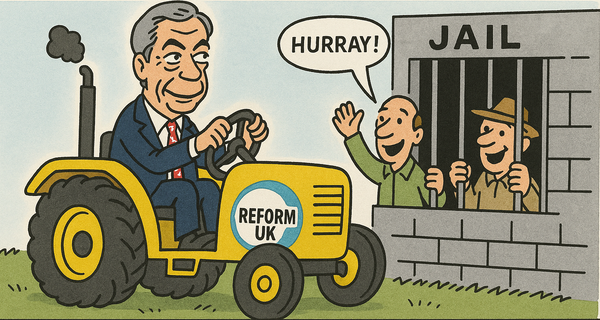General Election 2015: the election the newspapers lost?

The next few days could be a very interesting one for our national press. The vast majority have thrown their weight behind either the Tories or a continued LibDem/Tory coalition. The hold outs are the traditional Labour house organs – The Guardian, The Mirror and the New Statesman – and the Express which has gone UKIP.
It seems to me that whichever way the polls go, the national newspaper journalism business loses. Here’s why:
If Labour forms the government coalition
If the election goes the way of the polls, we’ll end up with a hung parliament, with Labour’s Ed Miliband in the best position to try and build a majority coalition.
If that happens, the idea that our newspapers can swing elections will be exposed as mythic, or historic.
(This is essentially the argument Peter Jukes made today)
The Sun won’t have won it. And the need for politicians to so openly court the owners will ease.
That’s going to require a huge mindset shift from many journalists, reflecting the fact that they’re opinion reporters, not opinion formers. And that might actually be a good thing – our press might end up more challenging, and less likely to fall in line as a cheerleader for a particular party or leader. A more robust press can only be good for our democracy.

If the Conservatives form the government coalition
Or, on the other hand, the Tories might do far better than the polling is predicting – and the newspapers have been reporting. If that’s the case. they’ll almost certainly make the case that it was them “wot won it”. But will the facts support that?
There seems to be a clear bias against the Tories in polling. This was most clearly seen in the 1992 election, when John Major came back into Number 10, against all evidence from the polls. And this comes from the idea of the Shy Tory – people who are unwilling to reveal their true voting intention:
For various reasons, people don’t like to admit that they are intending to vote Conservative at the next election, particularly to a stranger on the phone. This, I imagine, is related to the vitriol reserved by those on the left for those who have right wing leanings. You won’t tell a stranger that you intend to vote Conservative as you don’t know how they might react. If you don’t know what I mean by this, compare sitting down at a table of a Die-hard Labour supporters and announce you are a Conservative-voter with sitting down at a table of Conservative supporters and announcing you intend to vote Labour. The latter will most probably result in amused indulgence. The former won’t.
If you apply the consistent pattern of polling error to this year’s election, argues Number Cruncher Politics, then the Tories have a major lead:
But, crucially, what does it say about Tomorrow’s outcome? At present it implies a Conservative lead of just over 8 points. That would suggest either a very late swing or a large polling error (and probably both). But unless these relationships have completely fallen to pieces, David Cameron will be back as Prime Minister.
If that proves true and supports the “shy Tory” thesis – well, then we need to start asking some very serious questions of our journalists about their use of polls without an awareness of research into their accuracy over time.
To be fair, there have been some recent articles written about the topic:
- The Evening Standard covered the shy Tory issue back in January.
- CityAM coverer former Labour leader Neil Kinnock’s fears of the shy Tory factor coming into play, as did the Staggers
- The Telegraph too a look at the phenomenon without really committing to the idea.
But the narrative has been consistently neck-and-neck parties. And that’s a fun narrative for the newspapers to play with in what has been a consistently tedious election. But if it’s provably inaccurate – well, then we need to think a lot more about our placement of polling at the centre of the political narrative.





